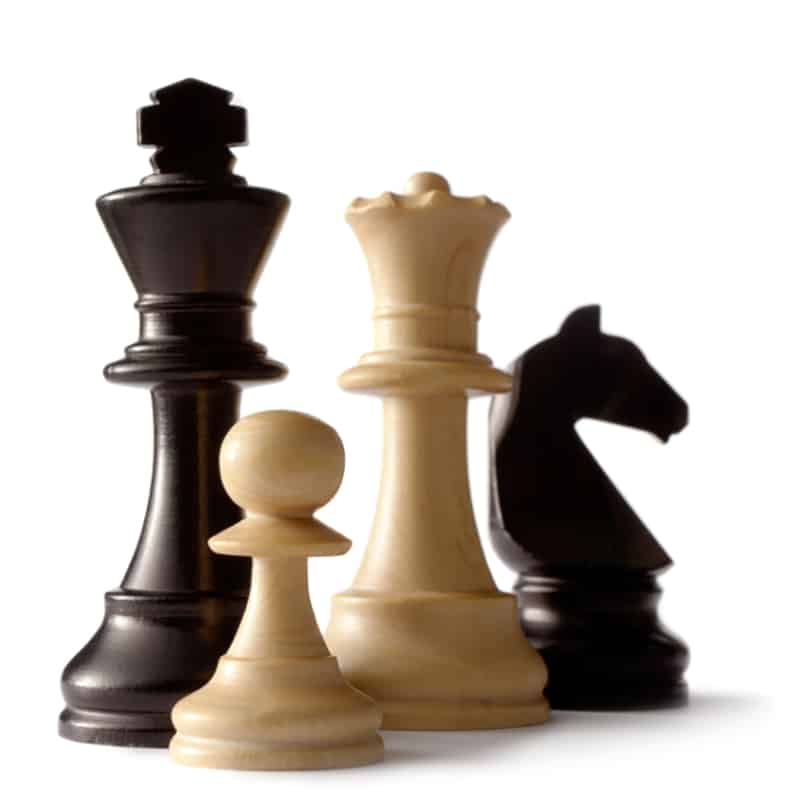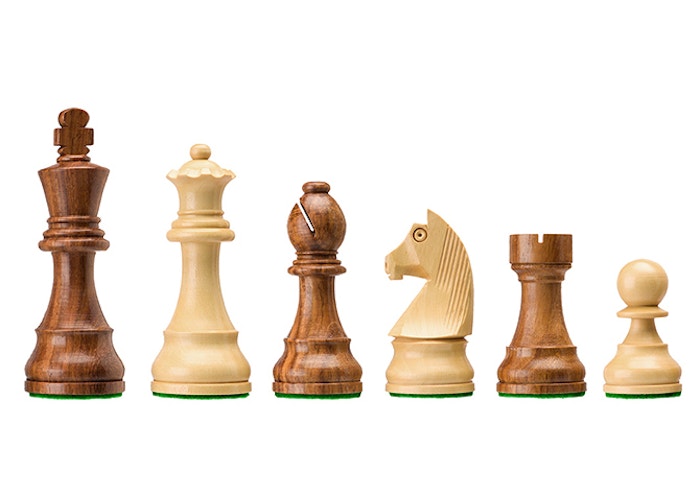The Link Between Chess and Cognitive Development
Wiki Article
Why You Need To Play Chess: The Advantages of Involving in This Timeless Intellectual Obstacle
Chess is greater than a straightforward video game; it works as a strenuous mental workout that hones various cognitive skills. Players take part in strategic thinking and establish analytic abilities, which can have long-term advantages in everyday life. The technique required for improvement cultivates persistence and durability. The real essence of chess lies not just in its intellectual needs but in the links it cultivates within a neighborhood. Exploring these dimensions exposes much about why chess continues to be ageless.Enhancing Cognitive Skills
Playing chess substantially improves cognitive skills, making it a useful activity for people of all ages. The game needs strategic reasoning and foresight, needing players to expect their opponent's steps while creating a winning technique. This psychological exercise develops emphasis and concentration, necessary elements of cognitive feature.
Chess urges imagination, prompting players to explore innovative tactics and unique approaches to the game. As they browse the chessboard, people establish persistence and resilience, necessary attributes for cognitive development. Generally, the diverse cognitive advantages of chess make it an enriching quest, advertising lifelong psychological agility and intellectual involvement.
Enhancing Problem-Solving Abilities
Many researches have revealed that involving in chess can significantly improve analytical abilities. The video game calls for gamers to evaluate intricate placements and prepare for the opponent's relocations, cultivating vital believing skills. As they browse different situations, chess players establish the ability to examine several results and make critical choices under stress. This procedure enhances their capacity to approach real-life problems with an organized mindset.In addition, chess advertises the recognition of patterns and the application of logical thinking, skills that are important in efficient analytic. Gamers find out to evaluate risks and benefits, refining their judgment in unclear circumstances. The repeated nature of chess play strengthens these abilities, permitting people to transfer their enhanced analytical capacities to scholastic and professional contexts. Ultimately, chess acts as an important device for any person looking for to hone their logical abilities and enhance their total cognitive performance in challenging situations.
Growing Patience and Technique
While participating in chess can be an exciting experience, it additionally calls for a considerable level of persistence and self-control. Gamers have to find out to carefully consider each action, evaluating prospective end results and strategies. This thoughtful approach cultivates a state of mind that values long-lasting success over instant gratification. In chess, rash choices commonly lead to unfavorable effects, enhancing the value of taking one's time to analyze the board and prepare for an opponent's reactions.
Discipline is more cultivated through regular method and study. Players typically devote hours to boosting their abilities, researching methods, and assessing past video games. This dedication to understanding the video game instills a feeling of obligation and perseverance, crucial characteristics that extend past the chessboard. Ultimately, the mix of persistence and technique not just improves a player's chess abilities yet additionally adds to individual development, furnishing individuals with vital devices for steering challenges in different aspects of life.
Fostering Creative Thinking and Creative Imagination

Planning moves involves not just logic yet also the capability to prepare for a challenger's feedbacks, urging gamers to envision multiple paths and options. As gamers trying out various methods, they learn to innovate and adjust, boosting their creative analytic skills.
The game's intricacy invites players to discover unconventional ideas and strategies, leading to individual designs of play - Chess. This exploration supports a sense of imaginative expression, as article source each gamer crafts their own method to difficulties on the board. Eventually, chess comes to be a canvas for creative thinking, enabling people to express their one-of-a-kind perspectives while establishing their imaginative capacities
Building Social Connections and Community
Playing chess supplies possibilities for people to network with events and neighborhood chess clubs. These atmospheres promote links amongst gamers, developing a sense of neighborhood centered around a common passion. Involving in these activities not only enhances abilities but also develops lasting connections.Networking Through Tournaments
When participants take part in chess tournaments, they usually discover themselves engaged in a vibrant community of similar individuals. These occasions supply a superb platform for players to forge connections, share strategies, and commemorate their enthusiasm for the game. Taking part in pleasant competition cultivates sociability, as gamers from varied histories collaborated to challenge each various other. Networking chances are plentiful, with several individuals developing enduring relationships that expand past the chessboard. In addition, these tournaments commonly attract enrollers and chess fanatics, further enhancing the potential for specialist links. As players engage in conversations regarding methods and experiences, they build a network that can cause future cooperations and possibilities within the chess world and beyond.Local Chess Clubs

Giving an Enjoyable and Engaging Obstacle
Chess provides a distinctively promoting experience that mesmerizes players of every ages, as it combines tactical thinking with the thrill of competition. This ageless video game provides a compelling difficulty, encouraging individuals to think critically and artistically. Each match unravels as a battle of wits, where players need to anticipate their opponent's steps while creating their own methods.The intellectual engagement chess gives is matched by its ability to delight. Players usually locate themselves immersed in the look at this website video game, misplacing time as they browse intricate settings and tactical problems (Chess). This heightened emphasis cultivates a sense of achievement, particularly when a hard relocation leads to victory
Chess advertises social interaction, permitting gamers to bond over common experiences and obstacles. The video game's limitless variations assure that no 2 sessions are alike, keeping participants passionate to refine their skills and approaches. This vibrant mix of difficulty and enjoyment makes chess an irresistible search.
Frequently Asked Concerns
Can Chess Be Played Online or Just in Individual?
Chess can be played both online and in person. Online systems offer gamers the comfort of completing against challengers worldwide, while in-person video games promote social interaction and physical presence, enhancing the general experience.What Age Is Finest to Begin Learning Chess?
Experts recommend that youngsters can begin discovering chess as early as age 5 or 6. At this age, they can understand fundamental ideas, improving cognitive skills while fostering a love for the game that lasts a lifetime.Exist Chess Tournaments for Beginners?
Yes, there are chess tournaments particularly made for beginners. These occasions provide an encouraging environment for newbie gamers to gain experience, improve their skills, and delight in the competitive spirit of chess without dealing with advanced challengers.For how long Does It Take to Come To Be Competent at Chess?
Becoming proficient at chess normally calls for regular method over several months to years. Aspects such as specific commitment, previous experience, and research of strategies significantly influence the time required to get to a qualified level.What Resources Are Readily Available for Learning Chess Methods?
Many resources exist for learning chess strategies, consisting of on-line tutorials, publications by popular writers, chess applications, and interactive web sites. Many players also take advantage of joining local clubs or getting involved in on-line discussion forums for real-time insights.Report this wiki page